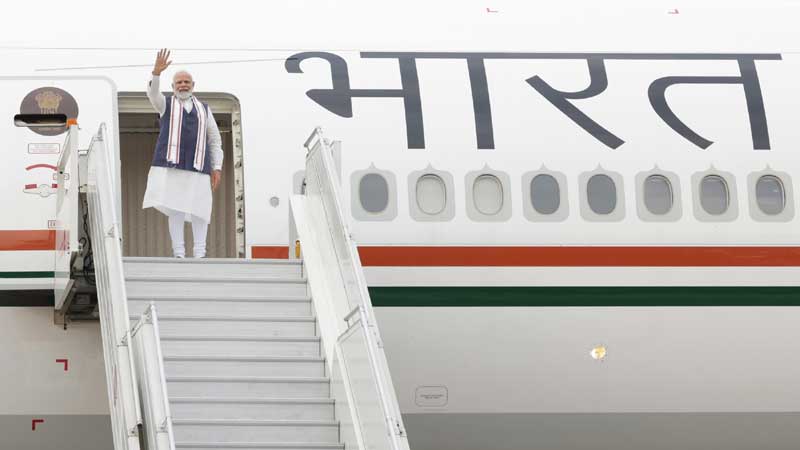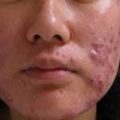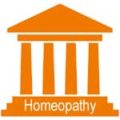The dawn broke with news of significance: Indian Prime Minister Narendra Modi embarked on a state visit to the United States. In his pre-departure statement, Prime Minister Modi outlined his optimistic vision for this visit – an opportunity to deepen and diversify the rich tapestry of India-U.S. relations. He drew attention to the multifaceted nature of the ties binding the two nations, highlighting that the United States is India’s largest trade partner in both goods and services.
The Prime Minister underscored the extensive collaboration between the two nations across a diverse array of fields, including but not limited to science & technology, education, health, and defense. He spotlighted the initiative on Critical and Emerging Technologies, which has expanded the scope of collaboration to include defense industrial cooperation, space, telecom, quantum technology, artificial intelligence, and biotechnology sectors.
Moreover, Prime Minister Modi highlighted the shared vision of a free, open, and inclusive Indo-Pacific region. This mutual aspiration has fueled further cooperation between the two nations and has added a new dimension to their relationship.
Reflecting on his past interactions with President Biden, Prime Minister Modi noted that they had met several times since his last official visit to the United States in September 2021. He eagerly anticipated the forthcoming discussions with President Biden and other senior U.S. leaders, viewing them as a valuable opportunity to strengthen bilateral cooperation and discuss collaboration in plurilateral forums such as the G20, Quad, and IPEF.
The Prime Minister also acknowledged the strong bipartisan support within the U.S. Congress for India-U.S. ties, a testament to the enduring nature of the relationship between the two nations. He expressed his belief that his state visit to the U.S. would further reinforce these ties, based on shared values of democracy, diversity, and freedom. He concluded his statement with a powerful message – together, India and the U.S. stand stronger in meeting global challenges.
As we delve into the implications of this state visit, one aspect to be explored is the potential influence it could have on the recognition and promotion of homeopathy in the United States. The journey ahead is ripe with possibility.
Section I: Background of Homeopathy
The practice of homeopathy, steeped in centuries of tradition, is a testament to the enduring power of nature and the human body’s inherent ability to heal itself. The conceptualization of this alternative medicinal discipline can be traced back to the late 18th century. Samuel Hahnemann, a German physician, dissatisfied with the medical practices of his time, pioneered the development of homeopathy. His innovative thinking led to the creation of a therapeutic approach that revolutionized the world of medicine and created a new healing paradigm.
Homeopathy’s fundamental principle, “Similia Similibus Curentur” or “like cures like,” was inspired by Hahnemann’s experiments, which he called ‘provings’. He discovered that quinine, a treatment for malaria, could cause malaria-like symptoms in a healthy individual. This revelation led him to the idea that a substance eliciting a certain symptom in a healthy person could cure that symptom in a diseased person. Thus, was born the foundational cornerstone of homeopathy.
This revolutionary concept was a stark contrast to the allopathic medicine of the time, which often employed practices such as bloodletting and purging. Homeopathy offered a gentle, holistic alternative, treating the patient as a complete entity rather than focusing on isolated symptoms.
The preparation of homeopathic remedies involves a unique process of successive dilution and vigorous shaking, known as potentization. This process, Hahnemann believed, activates the “vital energy” of the diluted substance and can stimulate a healing response in the body. The resultant remedies, usually in the form of small, white pellets, are tailored to the patient, underscoring the individualistic approach that homeopathy endorses.
Despite initial skepticism and resistance, homeopathy gained traction and quickly spread across Europe and beyond. Its journey to India began in the early 19th century, introduced by European missionaries and travellers. The system found fertile ground in India, where it resonated with the holistic principles ingrained in the country’s ancient healing traditions. Today, India is a global leader in homeopathic practice and education, with homeopathy enjoying constitutional recognition as one of the national systems of medicine.
As we explore the potential role of homeopathy in the upcoming state visit between India and the United States, understanding its rich history and foundational principles is essential. This deep-rooted system of medicine, with its emphasis on self-healing, could offer valuable insights and solutions in the ongoing quest for effective, holistic healthcare.
Section II: The Significance of the State Visit
State visits are events of profound political importance, steeped in diplomatic tradition and strategic intent. These visits not only enhance bilateral ties and foster international cooperation, but they also provide an opportunity to explore and negotiate areas of mutual interest. Prime Minister Modi’s three-day visit to the United States is more than a ceremonial gathering. It presents a unique opportunity for a dialogue on a subject close to India’s heart and deeply ingrained in its healthcare fabric – homeopathy.
The modern era of global politics is not just about hard power – military might or economic strength. It’s also about soft power, the ability to shape preferences and influence others through appeal and attraction. Culture, political values, foreign policies, and yes, healthcare practices, all contribute to a country’s soft power. Homeopathy, with its rich history and proven effectiveness, is a part of India’s soft power. It’s a testament to the country’s commitment to holistic, patient-centric healthcare that respects the individual’s autonomy and promotes natural healing.
Prime Minister Modi’s visit to the United States isn’t merely a diplomatic engagement; it’s a chance to introduce, promote and negotiate the potential integration of homeopathic principles into American healthcare. With the U.S. increasingly exploring alternative and complementary medicine, the timing couldn’t be more apt.
But what does this mean for both nations? For India, it’s a chance to spotlight homeopathy on a global platform, to share its vast knowledge and expertise, and to promote recognition of Indian homeopathic qualifications. For the United States, it’s an opportunity to expand its healthcare horizons, to offer its citizens more choices for treatment, and to learn from a country where homeopathy is an integral part of the healthcare system.
Furthermore, it’s an occasion to discuss the potential for a more favorable visa policy for Indian homeopathic doctors. The prospect of these highly skilled practitioners contributing to American healthcare represents a fascinating possibility. It could foster a cross-cultural exchange of medical knowledge and practices that benefits both nations.
In essence, Prime Minister Modi’s state visit to the United States carries the potential to redefine the global healthcare landscape. The incorporation of homeopathy into these high-level discussions could be a monumental step towards creating more holistic, diverse, and inclusive health systems. As the world grapples with complex health challenges, the need for such integrated and comprehensive approaches has never been more critical.
Section III: Homeopathy in India and its Global Influence
The narrative of homeopathy in India is a testament to the system’s adaptability, resilience, and widespread acceptance. From its introduction in the early 19th century by European missionaries and travellers, homeopathy has firmly established itself as a major player in the country’s healthcare landscape. Today, India is not just a stronghold of homeopathy but also a global influencer, shaping practices and perceptions worldwide.
India’s homeopathic infrastructure is robust, to say the least. The country boasts over 200,000 registered homeopathic practitioners, more than 200 homeopathic medical colleges, and a vast network of homeopathic dispensaries and hospitals. This robust system is complemented by regulatory bodies like the Central Council of Homeopathy, which ensures quality education, standardized practice, and continual advancement of homeopathic research.
The integration of homeopathy into India’s public health system is another indicator of the system’s acceptance and influence. Homeopathic treatments are available in many public health centers, and the system plays a significant role in the National Health Mission, an initiative aimed at achieving universal access to healthcare.
India’s success with homeopathy has not gone unnoticed. The country’s practices and regulations have served as a blueprint for other nations looking to incorporate homeopathy into their own healthcare systems. The global influence of Indian homeopathy extends beyond its borders, shaping policies, practices, and perceptions worldwide.
The potential for the United States to tap into this rich vein of knowledge and expertise is a tantalizing prospect. With a growing interest in holistic and alternative medicine, the U.S. healthcare system could benefit enormously from India’s experience and proficiency in homeopathy. This could translate into expanded treatment options, better patient outcomes, and a more diverse and comprehensive healthcare system.
The expected discussions during Prime Minister Modi’s state visit could pave the way for greater collaboration between the U.S. and India in the field of homeopathy. This could take many forms, from knowledge and skills transfer, collaborative research initiatives, to the recognition of Indian homeopathic qualifications in the U.S.
In conclusion, India’s homeopathic prowess isn’t just a national treasure; it’s a global asset. As the world leans towards more holistic and individualized healthcare, the knowledge and experience of Indian homeopathy could be the beacon leading the way. This state visit could be the catalyst that amplifies India’s global influence, opening doors to new opportunities and collaborations in the field of homeopathy.
Section IV: The Potential Impact on Visa Policies
Migration policies are typically reflective of a nation’s strategic interests and priorities. They often serve as a barometer for assessing the skills and professions that a country values and aims to attract. In the context of Prime Minister Modi’s state visit to the United States, the potential impact on visa policies for Indian homeopathic doctors is a topic of considerable interest.
The United States, known for its diversity and inclusivity, is home to a vast array of medical practices and healthcare philosophies. With a growing interest in holistic and alternative therapies, the nation is increasingly open to embracing different healing modalities, including homeopathy. This shift in health paradigm opens up the possibility of a corresponding change in visa policies favoring the immigration of homeopathic doctors, especially those from India, given its rich homeopathic tradition and expertise.
The recognition of Indian homeopathic qualifications in the United States could be a significant step in this direction. With rigorous training and a deep understanding of homeopathic principles, Indian homeopathic doctors are well-equipped to contribute meaningfully to the U.S. healthcare system. A change in visa policies that acknowledges these qualifications and makes it easier for such practitioners to immigrate could be mutually beneficial.
For the United States, it means access to a pool of highly skilled healthcare professionals who can enhance the diversity and scope of its healthcare offerings. For Indian homeopathic doctors, it offers the opportunity to practice in a new environment, to contribute to and learn from a different healthcare system, and to promote the understanding and acceptance of homeopathy on a global scale.
Such a move would also serve to foster closer ties between the two nations, facilitating a cross-cultural exchange of knowledge and practices. It could encourage collaborative research, further the understanding of homeopathy, and contribute to global health innovation.
In conclusion, the potential impact of the state visit on visa policies for Indian homeopathic doctors offers a vision of exciting possibilities. By opening doors and fostering connections, these policy changes could have profound implications for the future of homeopathy in the United States and the global healthcare landscape. This state visit could mark the beginning of a new chapter in the story of homeopathy, one that sees it stepping into the spotlight on the world stage.
Section V: The Future of Homeopathy in the United States
The United States, with its diverse healthcare landscape, is no stranger to homeopathy. The practice has been present in the country since the 19th century. Despite periods of fluctuation in its popularity and acceptance, homeopathy has experienced a resurgence of interest in recent years. This resurgence, coupled with the potential outcomes of Prime Minister Modi’s state visit, paints an intriguing picture of the future of homeopathy in the United States.
A growing segment of the American population is seeking holistic and preventative healthcare options, often turning to alternative and complementary medicine to fulfill these needs. Homeopathy, with its emphasis on individualized treatment and the body’s self-healing capabilities, aligns well with these preferences. The potential for homeopathy to become a more integral part of mainstream medicine in the United States is a prospect that could have far-reaching implications.
Greater recognition and integration of homeopathy into the U.S. healthcare system could expand the range of treatment options available to patients. This not only aligns with the growing consumer demand for holistic and individualized care but also has the potential to improve patient satisfaction and outcomes.
The potential recognition of Indian homeopathic qualifications, a topic likely to be broached during the state visit, could further enrich the U.S. homeopathic scene. It would open the door for more skilled practitioners to contribute to the country’s healthcare system, fostering an exchange of knowledge and expertise that could drive innovation in homeopathic practice and research.
Moreover, the potential change in visa policies for Indian homeopathic doctors could lead to an influx of highly trained professionals who can contribute to the growth and development of homeopathy in the United States. This could also facilitate collaborative research initiatives, furthering the understanding and effectiveness of homeopathy.
In essence, the future of homeopathy in the United States looks promising. A combination of changing patient preferences, potential policy shifts, and global collaborations presents a unique opportunity for homeopathy to occupy a more significant role in the country’s healthcare system. Prime Minister Modi’s state visit could very well be a pivotal moment in this journey, catalyzing a new era of growth and recognition for homeopathy in the United States.
Conclusion:
As the curtains rise on Prime Minister Modi’s state visit to the United States, it becomes clear that this diplomatic engagement carries the potential to significantly alter the landscape of homeopathy globally. The stage is set for conversations that could reshape perceptions, influence policies, and broaden horizons for homeopathy. The ramifications of these discussions could echo far beyond the conference rooms and state buildings, impacting lives and health systems across continents.
The recognition of Indian homeopathic qualifications in the United States is a significant stride towards acknowledging the expertise and proficiency of Indian homeopathy. Such a move would not only empower Indian homeopathic practitioners but also enrich the U.S. healthcare system with a deep reservoir of knowledge and experience. This cross-pollination of wisdom and practice could pave the way for innovative therapeutic approaches, enhanced patient care, and a more comprehensive understanding of health and healing.
The prospect of improved visa policies for Indian homeopathic doctors aligns with the broader vision of fostering global collaboration and exchange in healthcare. The United States, with its diverse healthcare landscape, stands to benefit from the unique perspectives and skills that these practitioners bring. Conversely, the opportunity to contribute to a different healthcare system can further enhance the proficiency and global perspective of Indian homeopathic doctors.
A broader acceptance of homeopathy in the United States could signify a shift towards a more inclusive and holistic healthcare approach. This shift could encourage the integration of diverse healing modalities into mainstream medicine, offering patients a wider array of treatment options and fostering a healthcare environment that respects and caters to individual needs and preferences.
As Prime Minister Modi’s state visit to the United States unfolds, the potential for homeopathy to play a central role in the discussions is an exciting prospect. These conversations could serve as the fulcrum for a new era in global health – an era that acknowledges the wisdom of alternative medicinal practices and integrates them into mainstream healthcare.
In the evolving narrative of global health, homeopathy’s chapter is far from complete. The path ahead is ripe with possibilities and opportunities. As we navigate this landscape, embracing the wisdom and potential of homeopathy could be key to fostering comprehensive, patient-centric, and inclusive health systems worldwide. This state visit may well be the turning point, a catalyst sparking change and innovation in the world of homeopathy, and by extension, global healthcare.









